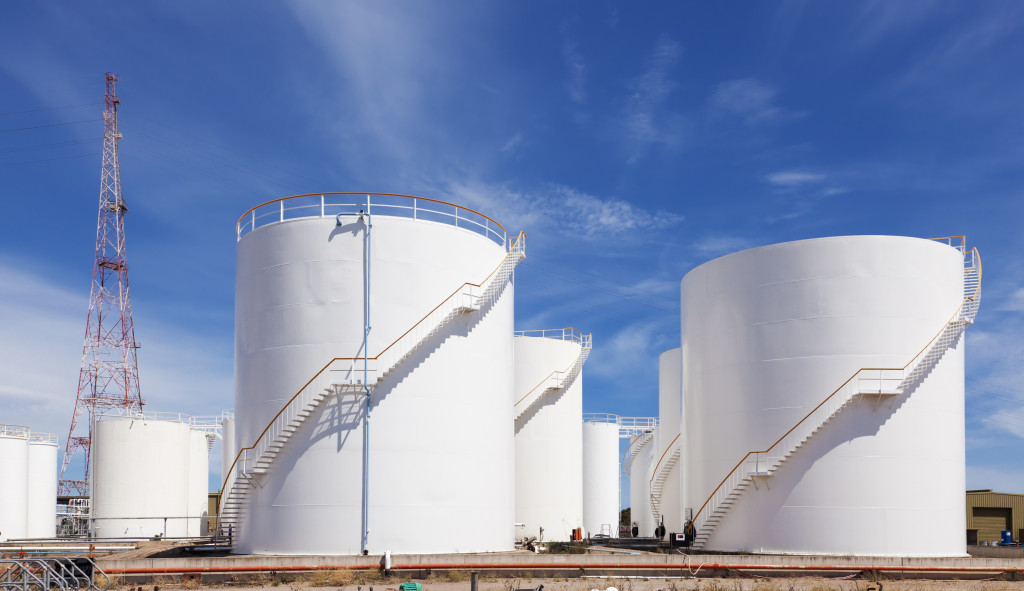- Companies can use automation software to make their work processes more efficient, boost productivity, and lower expenses.
- AI platforms can automate and simplify the production process – from exploration to refining.
- Real-time data can be obtained through sensors and data acquisition technologies, improving decision-making.
- The technology of 3D imaging is used to produce detailed models that show the structure of subsurface reservoirs in three dimensions, making it easier to understand them.
The petroleum industry is a complex and ever-evolving sector that relies heavily on modern technology to optimize production processes. This article will explore today’s most important gadgets and technologies for optimizing it.
Standard Production Machineries
Petroleum production facilities must have the appropriate machinery and technology to optimize their processes. Acquiring standard production machinery is essential in ensuring the gadgets required for petroleum production are available. However, investing in inert bed support balls is also important to enhance the distribution of liquids in the production process.
These balls help improve the liquid’s distribution spots, resulting in higher efficiency and productivity. Overlooking the importance of these support balls can cause a bottleneck in the production process, leading to financial losses. Therefore, investing in high-quality inert bed support balls is recommended to achieve optimal performance and productivity in petroleum production.
Advanced Technologies
Various technological advances are designed to improve the efficiency of petroleum production processes. Here are some of the most important ones:
Automation Software
Automation software has become a vital tool in optimizing petroleum production processes. This technology allows companies to streamline workflows, increase productivity, and reduce costs. By automating routine tasks, such as monitoring oil levels or adjusting pressure settings, workers can focus on more complex tasks and respond quickly to production changes.
These software solutions provide real-time data and analytics, enabling companies to make informed decisions based on current market conditions, geopolitical factors, and environmental regulations. In today’s highly competitive energy market, automation software has become necessary for companies seeking to stay ahead of the curve and maintain profitability.
Artificial Intelligence Platforms

Artificial Intelligence (AI) platforms are becoming increasingly popular across various industries to optimize operations and enhance productivity. In petroleum production, AI platforms are utilized to automate and streamline the production process, from exploration and drilling to refining and distribution.
This technology is essential in the industry, as it enables companies to collect and analyze large amounts of data in real-time, leading to improved decision-making and reducing operational costs. Petroleum production processes can involve complex and dangerous procedures, making AI platforms valuable for improving safety and efficiency. In conclusion, AI platforms are revolutionizing the petroleum industry, paving the way for a more sophisticated, effective, and safe production environment.
Sensors and Data Acquisition Technologies
Sensors and data acquisition technologies are crucial technological tools to optimize petroleum production. By providing real-time data, these gadgets ensure that oil and gas companies have a better understanding of their production processes, thus enabling them to streamline their operations to improve effectiveness and efficiency.
It is no longer a secret that these technologies have revolutionized the oil and gas exploration industry, allowing companies to make better, well-informed decisions on issues regarding drilling and production. These technologies offer a wealth of information that enables engineers to analyze the production process using dynamic models and assist in better design and optimization of the entire operation.
With the increasing energy demand, these gadgets have become a necessary part of the petroleum production process, ensuring companies in the industry can continue to meet global demand with efficiency and sustainability.
3D Imaging Technology
3D imaging technology has revolutionized the petroleum industry, significantly impacting production processes. This innovative technology involves creating detailed three-dimensional models of subsurface reservoirs, providing a clearer and more comprehensive view of the reservoir’s structure.
It uses computer algorithms to combine data from multiple sources, such as seismic surveys, well logs, and other reservoir simulations. With this technology, geoscientists and reservoir engineers can better understand the flow of fluids, which ultimately optimizes petroleum production. The importance of 3D imaging technology in the petroleum industry cannot be overemphasized as it saves costs, aids in efficient resource management, and enhances oil discovery.
Robotics

Robotics are a vital asset in the optimization of petroleum production processes. These advanced machines are designed to work efficiently and accurately in harsh and dangerous environments without human intervention. They are equipped with sensors, cameras, and other intelligent features that enable them to perform complex tasks that would have been impossible for humans.
Integrating robotics technologies in petroleum-related industries has increased production levels, improved safety standards, and reduced operational costs. Robotics has paved the way for a new era of automation and innovation in the petroleum industry, demonstrating that it is a necessary gadget to optimize processes.
These are just some of the gadgets and technologies used in the petroleum industry today to optimize production processes. As the industry evolves, the oil and gas industry will likely see new technological advancements to enhance production and refining.
